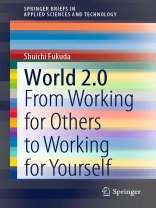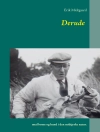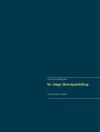This book explores on how the Internet of Things (Io T) will change society by bringing living and non-living things together. The Io T is currently attracting considerable attention, but most of the discussions focus on engineering aspects alone. The Io T, however, is not an extension of traditional engineering, where humans and machines are separated. Instead it connects humans and machines, enabling them to work together as a team: the Io T Connected Society.
In traditional engineering, our knowledge and experience of physical and non-living things plays a key role, but such knowledge and experience alone are not enough. We need to introduce life science approaches and integrate them into physical science to really develop the Io T connected society.
In addition, the Internet is not only a tool for delivering messages: it is a broader communication tool. In the Io T connected society, living things and non-living things communicate in complex ways. Machines
1. Introduction
2. Emerging Industrial Revolution
3. Io T: What makes it different from the past revolutions
4. World is changing
5. Engineering: How It was developed so far
6. Humans: Their characteristics
7. Value is changing
8. Adaptive team organization and management
9. Integration of Physical Science and Life Science
10. Summary
can provide humans with a improved situational awareness and advice, and together they can communicate to develop a better, happier society.
Thus, this book makes the case that to make the Io T connected society a reality, we need to integrate the physical and life sciences and develop a new science for the next generation of engineering.
Tabela de Conteúdo
Introduction.- Emerging Industrial Revolution.- Io T: What makes it different from the past revolutions.- World is changing.- Engineering: How It was developed so far.- Humans: Their characteristics.- Value is changing.- Adaptive team organization and management.- Integration of Physical Science and Life Science.- Summary.
Sobre o autor
Shuichi Fukuda is currently working as a member of the Science Council of Japan committee on brain and body, which aims to introduce life science advances into mechanical engineering field. Although it is not in the area of Io T, this contributes to our understanding of how life science achievements can be utilized in the Io T Connected Society.
At the Department of Precision Machinery, University of Tokyo, he worked together with numerous biology and biomechanics researchers. In addition, at the Institute of Industrial Science, University of Tokyo, where he earned his Ph D, he worked as a researcher with experts from these fields.












